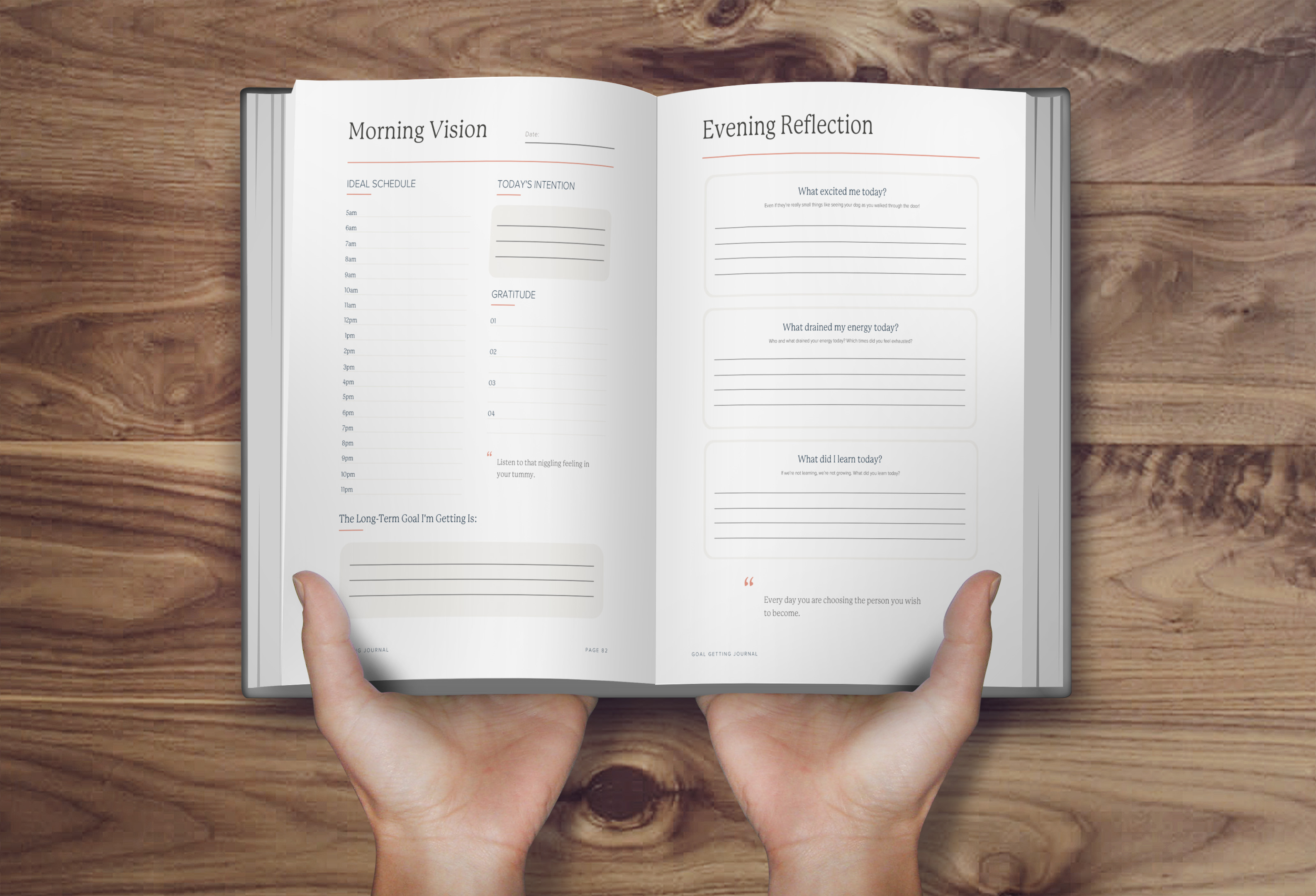Have you ever found yourself delaying a task, scrolling through social media instead of focusing on your work, or simply feeling overwhelmed by a seemingly never-ending to-do list? You're not alone. Procrastination is a common issue that many people face, but fortunately, there are proven strategies on how to stop procrastinating. In this blog post, we'll delve into the science behind procrastination, explore common triggers, and share practical techniques to help you stop procrastinating and start making progress toward your goals. Are you ready to take control of your time and productivity?
Here's What You'll Learn in This Article
-
Understand the underlying causes of procrastination to overcome it.
-
Use commitment devices and practical techniques like breaking tasks into smaller steps, setting realistic deadlines, creating a productive environment & prioritizing important tasks.
-
Develop healthy habits, increase self-control & address any underlying issues that could be causing chronic procrastination.
Why You Procrastinate

Procrastination is more than just a bad habit – it's a symptom of a deeper issue. Research has consistently linked procrastination to several factors, such as task aversiveness, task delay, self-efficacy and impulsiveness. This connection has been evidenced in multiple studies. One of the key reasons people procrastinate is the contrast between the Present Self and the Future Self. The Present Self is focused on immediate gratification, while the Future Self is more concerned with long-term rewards.
To beat procrastination, it's essential to understand its underlying causes and find ways to align our Present Self with our Future Self to make progress toward our long-term goals.
A common misconception about procrastination is that it's simply a time management issue. However, it's often rooted in deeper psychological factors such as fear of failure, perfectionism, or even an underlying mental health issue. By addressing these factors, we can develop self-compassion, improve our self-efficacy, and ultimately stop procrastinating.
The Science Behind Procrastination
Procrastination is a self-regulatory failure where people delay essential tasks even though they know they shouldn't. This behavior is often driven by time inconsistency, which is the tendency of our brains to prioritize immediate rewards over those that are farther away. For example, scrolling through social media may be more appealing in the present moment than working on a project with long-term benefits.
One way to overcome procrastination is to use commitment devices, which are tools that help you plan your future actions in advance. Examples of commitment devices include buying food in single servings, uninstalling games or social media apps, stowing away the TV, or setting up an automatic transfer of funds to a savings account. By making it more difficult to procrastinate, commitment devices can help you stay focused on your long-term goals.
Common Triggers and Forms of Procrastination
There are several common triggers and forms of procrastination, including perfectionism, fear of failure, difficulty with organization, personality traits, decision-making styles, time perspectives, emotional regulation, and even biological factors. For instance, procrastinators tend to have brain structures that make them less focused on the future. This can cause them to avoid unappealing tasks that have long-term benefits, ultimately leading to increased procrastination.
Procrastination is a widespread issue, affecting 15%-20% of adults and a staggering 80%-90% of students. By understanding the common triggers and forms of procrastination, we can take steps to address these factors and create a better environment for productivity and success.
Practical Techniques to Overcome Procrastination

Now that we understand the science behind procrastination and its common triggers, let's explore some practical techniques to help you overcome procrastination and start making progress toward your goals. These techniques include breaking tasks into manageable steps, setting realistic deadlines, creating a productive environment, prioritizing important tasks, developing self-compassion, using time management techniques, leveraging social support, and addressing fears and perfectionism.
By breaking tasks into smaller steps, you can make them more manageable and less intimidating. Setting realistic deadlines can help you stay on track and avoid procrastination. Creating a productive environment can help you stay focused and motivated. Prioritizing important tasks can help you stay on track.
The Goal Getting Journal helps you break down your big goals into weekly and daily tasks. Check it out here.
Break Tasks into Manageable Steps
One of the most effective ways to overcome procrastination is to break large tasks into smaller, more manageable steps. By doing this, you reduce the friction of starting a task and make it less overwhelming. For example, if you have a big project to complete, break it down into smaller tasks, such as researching, outlining, drafting, and editing.
The 2-Minute Rule and the 5-second rule are helpful techniques that can assist you in taking action on smaller tasks. The 2-Minute Rule encourages you to start a new habit that takes less than two minutes to do, while the 5-second rule involves counting down from a number and then prompting yourself to start a task. These techniques can help you build momentum and overcome the initial resistance to starting a task.
Set Realistic Deadlines
Setting realistic deadlines for your tasks is crucial in overcoming procrastination. Deadlines create a sense of urgency and can help you stay focused and motivated. Moreover, setting intermediate deadlines breaks the goal into smaller steps, making it more manageable and less intimidating.
Creating a detailed timeline with specific deadlines can help you stay on track and prevent procrastination. Additionally, ultra-short deadlines, measured in seconds or minutes, can be effective in prompting immediate action on tasks. By setting realistic deadlines, you can keep yourself accountable and make consistent progress towards your goals.

Create a Productive Environment
A productive environment plays a crucial role in overcoming procrastination. To create a productive environment, start by reducing physical and digital distractions. This could involve tidying up your workspace, turning off notifications, blocking websites, or setting a timer to help you stay focused on your tasks.
Finding a quiet place to concentrate is essential for productivity. Seek out a distraction-free environment, such as a library or a designated corner in your home. If noise is an issue, consider using noise-canceling headphones or earplugs to block out distractions.
When you feel uninspired, switch up your workspace by working in a different room or location, or by listening to music or podcasts to create a fresh atmosphere.
Prioritize Important Tasks
Prioritizing important tasks is a key factor in overcoming procrastination. By focusing on the most important tasks first, you can ensure that your time and energy are spent effectively. To prioritize tasks, create a list and rank them in order of importance, starting with the most important tasks. Breaking down large tasks into smaller, more manageable steps can also help you stay on track.
Staying motivated when tackling important tasks can be challenging, but setting small goals, organizing tasks to build momentum and confidence, and focusing on one task at a time can help you stay engaged and productive. Remember to reward yourself for progress, as this can create a positive association with the task and keep you motivated to continue working.
Develop Self-Compassion
Developing self-compassion is an essential aspect of overcoming procrastination. Instead of punishing yourself for procrastinating, practice self-compassion by showing kindness and understanding towards yourself, even when things aren't going as planned. Research shows that practicing self-compassion can help reduce procrastination and its negative effects.
To practice self-compassion, talk kindly to yourself, take breaks when needed, and forgive yourself for making mistakes. By cultivating self-compassion, you can develop a more positive outlook on challenging tasks, which can help you be more productive and get meaningful work done.
Use Time Management Techniques
Utilizing effective time management techniques can significantly help in overcoming procrastination. Techniques such as the Ivy Lee Method, a simple productivity system with six steps, can help you stay organized, prioritize tasks, and make consistent progress.
The Ivy Lee Method involves listing your six most important tasks for the day, prioritizing them in order of importance, and then working on them one at a time, starting with the most important task. By focusing on one task at a time and using time management techniques, you can effectively manage your workload and prevent procrastination.
The Goal Getting Journal has a daily morning planner so you can make every hour count. Check it out here.

Leverage Social Support
Leveraging social support is another effective strategy for overcoming procrastination. By finding a motivation buddy who shares your goals and interests, you can hold each other accountable and make the process of working towards your goals more enjoyable.
To get the most out of your motivation buddy relationship, clearly define your goals and expectations, stay in touch regularly, and celebrate your successes together. The support and encouragement from a motivation buddy can help you stay on track and make consistent progress towards your goals.
Address Fears and Perfectionism
Fears and perfectionism are common triggers for procrastination. By addressing these issues, you can break the cycle of worry and low self-confidence that often leads to procrastination. Giving yourself permission to make mistakes can help ease the fear of failure and the pressure to be perfect, allowing you to take risks and be more productive.
To reduce friction and make tasks easier to start, focus on breaking tasks into smaller, more manageable steps. This can help you overcome the initial resistance to starting a task and ultimately help you tackle your fears and perfectionism head-on.
Reward Yourself for Progress
Rewarding yourself for progress is a crucial aspect of overcoming procrastination. Even if external rewards aren't effective, finding a suitable treat to motivate you can be beneficial. Just as monkeys learned to put up with an electric shock to get food, you should also find a good enough treat to motivate you.
Effective ways to reward yourself for progress include taking a break from the task, getting a treat, or something related to the task like a new tool or skill. By rewarding yourself for progress, you can create a positive association with the task, stay motivated, and stay on track with the task, rather than getting overwhelmed by the end goal.
Long-term Solutions for Chronic Procrastination

In addition to the practical techniques discussed above, it's essential to consider long-term solutions for chronic procrastination. These solutions include building healthy habits, strengthening self-control, and addressing underlying issues such as depression, anxiety, and perfectionism that may be contributing to your procrastination problem.
Building Healthy Habits
Establishing healthy habits is vital in overcoming chronic procrastination. One way to build healthy habits is to use visual cues to remind you to start a behavior, display your progress, and have an additive effect on your motivation. Techniques like the Endowed Progress Effect, which involves seeing your previous progress to encourage your next productive action, can also be beneficial in building healthy habits.
Other strategies, such as The Paper Clip Strategy and The Seinfeld Strategy, can help you beat procrastination daily and maintain consistency over the long term. Developing and maintaining healthy habits is crucial for long-term success in overcoming procrastination.
Strengthening Self-Control
Strengthening self-control is another essential aspect of overcoming chronic procrastination. Delaying impulses by counting before indulging them can help increase your self-control and ultimately help you avoid procrastinating.
Using pre-commitment devices, such as removing distractions or setting up automatic transfers to a savings account, can also make it harder to procrastinate and help you strengthen your self-control. By developing self-discipline and resisting temptation, you can effectively tackle chronic procrastination and take control of your time and productivity.
Addressing Underlying Issues

Underlying issues, such as depression, anxiety, and perfectionism, can contribute to chronic procrastination. Addressing these issues is crucial for long-term success in overcoming procrastination. Treating conditions like ADHD or depression may require professional help, such as medication, therapy, or lifestyle changes.
In addition to seeking professional help if necessary, changing your mindset and breaking tasks into manageable chunks can also help address underlying issues causing procrastination. By tackling these issues head-on, you can create a strong foundation for long-term success in overcoming procrastination.
The Bottom Line
In conclusion, overcoming procrastination is a multifaceted challenge that requires understanding the science behind procrastination, addressing common triggers, and implementing practical techniques to stay focused and motivated.
By breaking tasks into manageable steps, setting realistic deadlines, creating a productive environment, prioritizing important tasks, developing self-compassion, using time management techniques, leveraging social support, and addressing fears and perfectionism, you can make significant progress in overcoming procrastination.
Using tools like The Goal Getting Journal can help you stay on track, make your goals more manageable and prioritize the highest impact tasks. Check it out here.

Additionally, building healthy habits, strengthening self-control, and addressing underlying issues are essential for long-term success. With the right strategies and mindset, you can stop procrastinating and start making meaningful progress toward your goals.
Frequently Asked Questions
How do I stop myself from procrastinating?
To stop procrastinating, start by admitting that you're doing it and setting achievable goals. Then eliminate distractions, choose a good study location, work with a study group, take regular breaks, and reward yourself for progress.
Finally, hold yourself accountable to stay on track and reach your goals.
What is the main cause of procrastination?
The main cause of procrastination is anxiety, depression, low self-esteem, ADHD, and poor study habits. People who procrastinate tend to feel overwhelmed by their responsibilities or have unfounded negative beliefs about themselves, which leads to avoidance of activities they find difficult.
Ultimately, procrastination takes a toll on our mental and physical health.
Do ADHD people procrastinate?
Yes, many people with ADHD struggle with procrastination as a result of the symptoms associated with the condition. Distractibility, impulsivity, and difficulty managing time can all lead to procrastination in individuals with ADHD.
It is important to note, however, that not everyone with ADHD procrastinates.
What is the 5-minute procrastination trick?
The five-minute rule is an effective way to fight procrastination. It's simple: give yourself five minutes to get started on a task you've been putting off. When the time is up if you want to keep going, set another timer for another five minutes. That way, you can get into a productive rhythm and build momentum.
The 5-minute procrastination trick is to commit to spending just five minutes on something that you have been dreading or avoiding. You set a timer for five minutes and start the task. If you want to keep going after the timer goes off, reset it for another five minutes to keep building momentum and productivity.
How do I force myself to stop procrastinating?
To force yourself to stop procrastinating, it's important to identify your triggers and eliminate distractions, set achievable goals, prioritize tasks, break down big projects into smaller steps, and hold yourself accountable.
Additionally, keep a To-Do List and use task- and time-management apps to stay focused.

